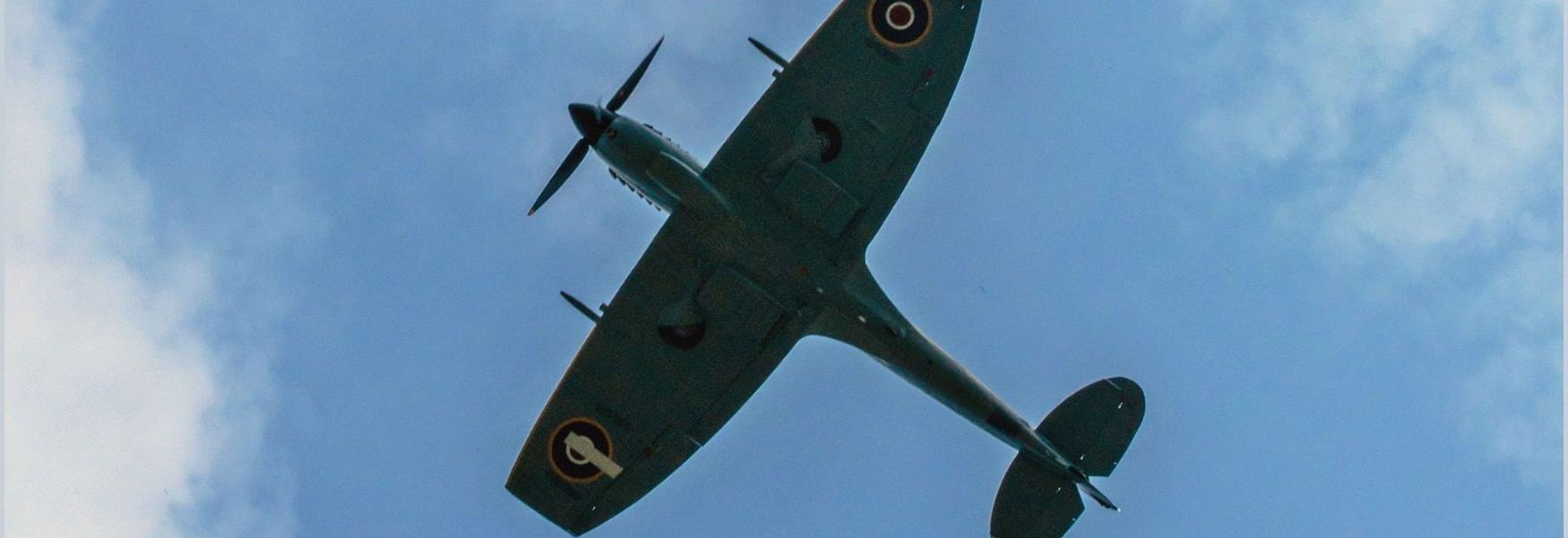To build your own Itinerary, click  to add an item to your Itinerary basket.
to add an item to your Itinerary basket.
Already saved an Itinerary?



You are here: UK History > Britain at War > WWII > Britain under Nazi occupation
Though Nazi forces did not manage to invade or occupy the British mainland, they did occupy the Channel Islands, British Crown dependencies in the English Channel near Normandy. The Channel Islands are the only part of the British Empire to be occupied by the Nazis during the war. Initially, the occupying forces had a relatively moderate approach to the non-Jewish population, however as time passed, the situation grew worse with forced labour and mass deportations. By the end of 1944, those living on the Islands were in near starvation.
At the start of the War, little changed on the Channel Islands. Conscription did not exist there, but several people did travel to the mainland to join up. Most of the trades continued as normal and the British government allowed morale-boosting holidays for the public to the Channel Islands.
As the Channel Islands are located closer to Normandy than to Britain, when Nazi forces attacked Belgium and the Netherlands, it brought the fighting to their doorstep.
On 15th June, the Allies suffered a defeat in the Battle of France, leaving the British Government to decide that the Channel Islands were of no strategic importance and they would not be defended. The Nazis were not given this information and Winston Churchill was said to be reluctant to “give up the crown’s oldest possession”. Despite this, the Channel Islands were not of any importance to the Nazis other than the propaganda value of occupying British lands.
In June of 1940, the Governors of the Channel Islands were instructed to provide boats to help with the evacuation of British soldiers from France. Eighteen boats left Jersey and helped troops reach waiting transport ships. A few days later, General Charles de Gualle arrived from France on his way to Britain where he was seeking refuge.
Unlike the evacuation of London which took place within days of war being declared, the evacuation of civilians from Jersey and Geurnsey was relatively late. There was little planning and so much secrecy that the whole programme was chaotic and different policies were adopted by each island. In the end, the British Government made boats available so islanders had the option to leave if they wanted to. The majority remained behind.
The Nazis did not realise that the islands had been demilitarised and approached them with extreme caution. On 28th June 1940, the ports of both Jersey and Guernsey were heavily bombed, leading to a total of 44 islanders being killed. The Nazis first took Guernsey, and Jersey surrendered a few days later. Alderney surrendered on 4th July and the first set of Nazi troops arrived in St Peter Port on 14th July.
An order was issued in July of 1940 that instructed that any laws passed on the Channel Islands, would have to be given assent by the Kommandant and that German orders were to be registered as legislation. Civil courts would continue, but German military courts would try any breaches of German Law.
One of the first things the Nazi occupiers did was to change the Island’s time zone from GMT to CET, bringing the islands into line with the rest of continental Europe. Driving on the right was also implemented and “occupation money” was issued to keep the economy going, locals were also paid in Reichsmarks.
Nazis did allow entertainment to continue including theatres and the cinema. The Islanders complied with the Nazi rules but occupation was not welcomed. One important individual was Norman le Brocq, the founder of the Jersey Communist Party and the Jersey Democratic Movement. He became the leader of the Jersey Resistance and campaigned for punishments for those in authority who did not fight the deportation of the Islands’ Jews.
As the Nazi occupiers left most of the Island’s governments to continue the day to day administration, occupation was not on the same scale as other areas of Europe. Very few of the civilians came into contact with the Nazi troops, though as the war progressed, life on the Channel Islands became increasingly more difficult. Many people lost their jobs and found it hard to find new work, radios were confiscated and from September 1942, deportations began. The winter of 1944-45 was very cold and hungry, with many of the population being saved from starvation by the arrival of the Red Cross.
Under Nazi occupation the following rules were brought in.
The following were confiscated:
Weapons
Boats
Radios
Motor vehicles
Cameras
Fuel
Houses
Furniture
The following were restricted:
Fishing
Drinking alcohol
Exporting goods
Changing prices of goods
Patriotic songs and signs
More than three people meeting together
Access to beaches
Fuel
Freedom of speech
Access to medicines
Clubs and associations
The following changes were made:
Clocks changed from GMT
Driving on the right hand side of the roads
Rations
The following were brought in:
Censorship
Curfew
Exchange rate to Reichsmarks
Census
Food rationing
Increase in income tax
Identity cards
Cycling in single file
Lodgers billeted
German languages in schools
Accepting work from Germans.
During the occupation, forced labour camps were installed in Jersey, Guernsey and Alderney. The organisation Todt operated each camp and used forced labour to build bunkers and fortifications.
A small number of Jews lived on the Channel Islands at the time of the war. Most had been evacuated in June 1940, but British law did not allow enemy citizens, irrespective of their ethnicity to enter Britain without a permit. In October 1940, Nazi officials issued their first anti-Jewish Order which instructed the police to identify Jews. Those that were identified were marked with a red J and their property was turned over to the Nazis. The registered Jews on the island, many of whom had Jewish heritage rather than identifying as Jewish, were subjected to a series of rules, including closing their businesses and only being allowed outside for an hour a day.
Local officials made effort to stop some anti Semitic measures by the occupiers and so Jews were not required to wear yellow stars and most of the former Jewish businesses were returned once the war was over. Freemasonry was also suppressed by the Germans and their temples were ransacked in the Channels, with their property taken to Berlin for display. Scouting was also banned but continued undercover.
On specific orders from Adolf Hitler, the Germans announced that all residents of the Channel Islands who had not been born there, as well as those who served in WWI were to be deported. The majority were sent to South Germany.
Liberation began on 12th May 1945, the British government planned for the relief and restoration of order in the islands and food, clothes, and other household necessities were stockpiled so they could be supplied to residents as soon as authority changed hands. Reichsmarks continued for a time to minimise financial disruption, but was exchanged for sterling.
On 7th June, the King and Queen visited Jersey and Guernsey to welcome the oldest possessions of the Crown back to freedom. The handing over of power was peaceful and civil order was maintained throughout the handover and each local authority were left to make their own regulations as they saw fit. Unlike other areas of Europe, those that had collaborated with the Nazis and saw the deportation of the Jewish population were not published and much of the bunkers and tunnels built during the occupation are still in place today.
Since the end of the occupation, Liberation Day is celebrated as a national holiday on Jersey and Guernsey. Sark marks the day on the 10th May and as Alderney didn’t have an official local population, instead they celebrate a Homecoming Day on 15th December to mark the return of evacuees.
© Visit Heritage 2025. All Rights Reserved

.png)


